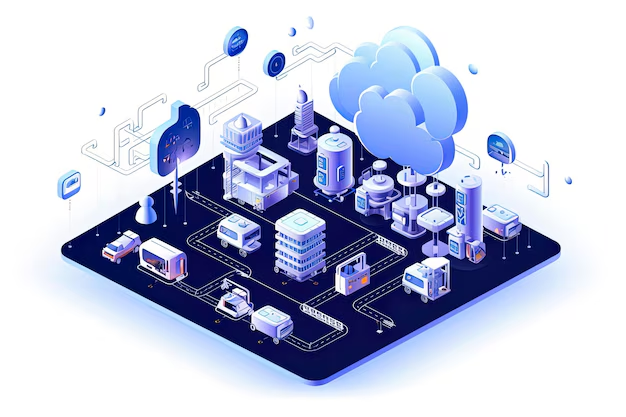Working Hours: Monday - Saturday, 10 AM - 7 PM
Blog Posted on 18 September, 2024 - 02:21 AM

Freelancing 2.0: Influencing the Future of Work and Unlocking New Digital Opportunities
In the past decade, freelancing has evolved from being a fringe activity to a global phenomenon that is reshaping the way we think about work. The rise of the digital economy, technological advancements, and changing attitudes toward work-life balance have fueled the rapid growth of the freelancing sector. Freelancing 2.0 represents the next chapter in this evolution—a phase where independent work is not just an option but a central element in the future of work. This new era is about leveraging digital platforms, embracing flexibility, and tapping into a world of opportunities that transcend geographical boundaries.
The Evolution of Freelancing
Freelancing is not a new concept. Independent contractors, gig workers, and freelancers have been around for centuries. What’s changed is the scale and the technological infrastructure that now supports this type of work. According to a study by Upwork, nearly 36% of the U.S. workforce engaged in freelance work in 2020, contributing over $1 trillion to the economy. Freelancing is now a mainstream choice for many, offering more freedom, flexibility, and control than traditional employment.
But the rise of freelancing is not just a result of individual preferences. Companies are increasingly embracing the freelance model as a way to cut costs, gain access to specialized skills, and adapt to changing business needs. In an ever-competitive global market, businesses that can quickly scale their workforce or bring in specialized expertise are better positioned for success.
Freelancing 2.0: What’s Different?
Freelancing 2.0 is not merely an extension of the existing freelancing trend. It marks a significant shift in how work is organized, delivered, and valued. Here are some of the defining features of this new era:
- The Power of Digital Platforms
- Specialization and Niche Expertise
- Hybrid Work Models
- Technology as an Enabler
- The Gig Economy Meets Freelancing
Platforms like Upwork, Fiverr, and Freelancer.com have created digital marketplaces that connect freelancers with clients across the world. These platforms not only make it easier for freelancers to find work, but they also enable businesses to tap into a global pool of talent. Freelancers are no longer limited by local opportunities; they can now work for clients in different countries, industries, and time zones. Freelancing 2.0 will see these platforms evolve with enhanced AI-driven matching, more streamlined payment systems, and advanced project management tools.
As freelancing matures, the demand for specialized skills is increasing. Freelancers who can offer niche expertise, whether in fields like artificial intelligence, blockchain, or content marketing, are commanding higher rates and more opportunities. Freelancing 2.0 will reward those who invest in continuous learning and skill development. In the future, we will see more freelancers branding themselves as experts in specific domains, further increasing the value of specialized freelance services.
Freelancing 2.0 is also about blending traditional employment with freelance opportunities. Many professionals are now opting for a hybrid work model where they maintain full-time jobs while taking on freelance gigs for additional income. This hybrid model allows workers to explore passions, test business ideas, or simply supplement their income without giving up the stability of a regular job. Employers are increasingly open to these flexible arrangements, recognizing that hybrid models can enhance productivity and job satisfaction.
Technological advancements, particularly in collaboration tools, have played a crucial role in the rise of freelancing. Remote work technologies such as Slack, Zoom, Asana, and Trello have made it easier for freelancers to collaborate with teams from anywhere in the world. Freelancing 2.0 will see further integration of tools that enhance productivity, communication, and workflow management, enabling freelancers to deliver high-quality work more efficiently. Additionally, blockchain technology may lead to decentralized freelancing platforms, offering more autonomy to freelancers.
The gig economy and freelancing have always been closely related, but Freelancing 2.0 will see the boundaries blur further. Gig economy platforms like Uber, DoorDash, and TaskRabbit have traditionally been focused on local, low-skill tasks. However, as gig workers develop more skills, they are starting to cross over into more traditional freelancing sectors like graphic design, software development, and digital marketing. This trend will continue to grow, providing a more diverse range of opportunities for workers in both the gig and freelance economies.
The Benefits of Freelancing 2.0
Freelancing 2.0 presents a wealth of opportunities for both workers and businesses. Here are some of the key benefits:
- For Freelancers
- Flexibility and Autonomy: Freelancers can set their own schedules, choose their projects, and work from anywhere. This level of freedom is highly appealing to those who value work-life balance or want to pursue other interests alongside their work.
- Higher Earning Potential: Freelancers, particularly those with specialized skills, can command higher rates than their traditionally employed counterparts. With global demand for specific talents, many freelancers earn significantly more than they would in a salaried role.
- Diverse Opportunities: Freelancing allows individuals to work on a wide range of projects across different industries and clients. This diversity keeps the work interesting and helps freelancers build a varied portfolio.
- Continuous Learning: As freelancers take on diverse projects, they constantly acquire new skills and experiences. Freelancing 2.0 places a premium on continuous learning, making it a great path for those who want to stay at the cutting edge of their profession.
- For Businesses
- Access to Global Talent: Digital platforms allow businesses to access specialized skills from anywhere in the world, overcoming geographical barriers and increasing the pool of available talent.
- Cost Efficiency: Hiring freelancers on a project-by-project basis allows businesses to manage costs more effectively, avoiding the long-term financial commitments associated with full-time employees.
- Scalability: Freelancers provide businesses with the ability to scale their workforce up or down quickly, depending on the demands of specific projects or business cycles.
- Innovative Solutions: Freelancers often bring fresh perspectives and creative problem-solving skills to projects, driving innovation within the business.
Challenges Facing Freelancing 2.0
While Freelancing 2.0 offers numerous advantages, it also presents certain challenges that need to be addressed:
- Job Security: Freelancers typically lack the job security and benefits of full-time employment, such as healthcare, retirement plans, and paid time off. As freelancing becomes more popular, there’s growing pressure to develop new safety nets for independent workers. Governments and private entities may need to introduce policies and programs that offer protection and stability to freelancers.
- Competition: With more people entering the freelance workforce, competition for jobs is increasing. Freelancers need to differentiate themselves through specialization, quality of work, and strong portfolios to stay competitive.
- Payment and Client Relations: Freelancers often face issues with delayed payments or disagreements with clients over project scope. Freelancing 2.0 platforms are working to resolve these challenges by implementing secure payment systems, standardized contracts, and dispute resolution mechanisms.
- Work-Life Balance: While freelancing offers flexibility, it can also blur the lines between work and personal life. Freelancers must learn to manage their time effectively to avoid burnout and maintain a healthy work-life balance.
Unlocking New Digital Opportunities
Freelancing 2.0 is about more than just securing jobs—it’s about unlocking new digital opportunities in a rapidly changing landscape. Here’s how freelancers can harness these opportunities:
- Remote Work Revolution: The shift to remote work, accelerated by the COVID-19 pandemic, is not going away. Freelancers are perfectly positioned to benefit from this trend as more companies adopt remote-first policies, allowing freelancers to integrate seamlessly into teams without geographical limitations.
- Personal Branding: In a crowded marketplace, building a strong personal brand is essential for success. Freelancers can take advantage of digital tools like social media, blogs, and portfolios to showcase their expertise, share insights, and connect with potential clients.
- Passive Income Streams: Many freelancers are diversifying their income by creating digital products, online courses, or subscription-based services. This allows them to generate passive income while still focusing on their freelance work.
- Collaborative Networks: Freelancing doesn’t have to be a solitary endeavor. Freelancers are increasingly forming networks and collectives to collaborate on large-scale projects, pool resources, and support each other’s growth. These networks create opportunities for freelancers to take on bigger, more complex projects that they wouldn’t be able to handle alone.
“Freelancing 2.0 empowers individuals to redefine work, unlocking a world of digital opportunities where passion meets profession.”
Conclusion
Freelancing 2.0 is shaping the future of work by offering unprecedented flexibility, access to global opportunities, and a path to continuous learning and growth. As digital platforms evolve and technology continues to advance, the possibilities for freelancers will only expand, opening new doors for independent professionals and businesses alike. However, with these opportunities come challenges that must be addressed to ensure the long-term sustainability of the freelance economy.
By staying agile, specializing in niche areas, and leveraging digital tools to enhance their work, freelancers can thrive in this new era of independent work. The future of freelancing is bright, and those who embrace the changes brought about by Freelancing 2.0 will be well-positioned to succeed in the evolving world of work.
Insightful Blogs
Discover insightful blogs that offer valuable perspectives, expert opinions, and engaging content on the latest trends and developments.
Get In Touch
With Us
We are headquartered in Kolkata, India. Send us your message and we shall get back to you soon.
Come and See the Future with Us
Let's make something great together. We are trusted by over 50+ clients. Join them by using our services and grow your business.




